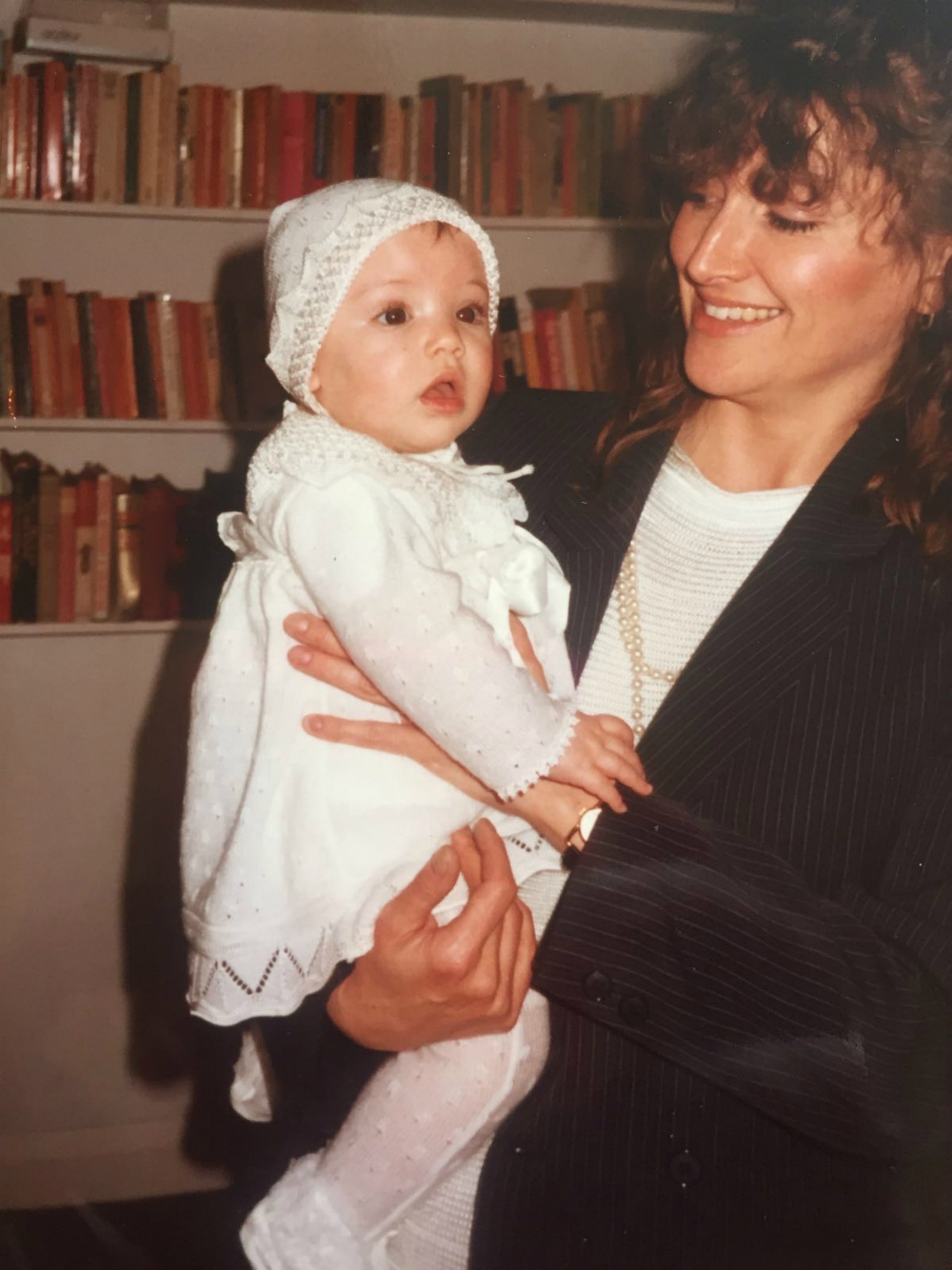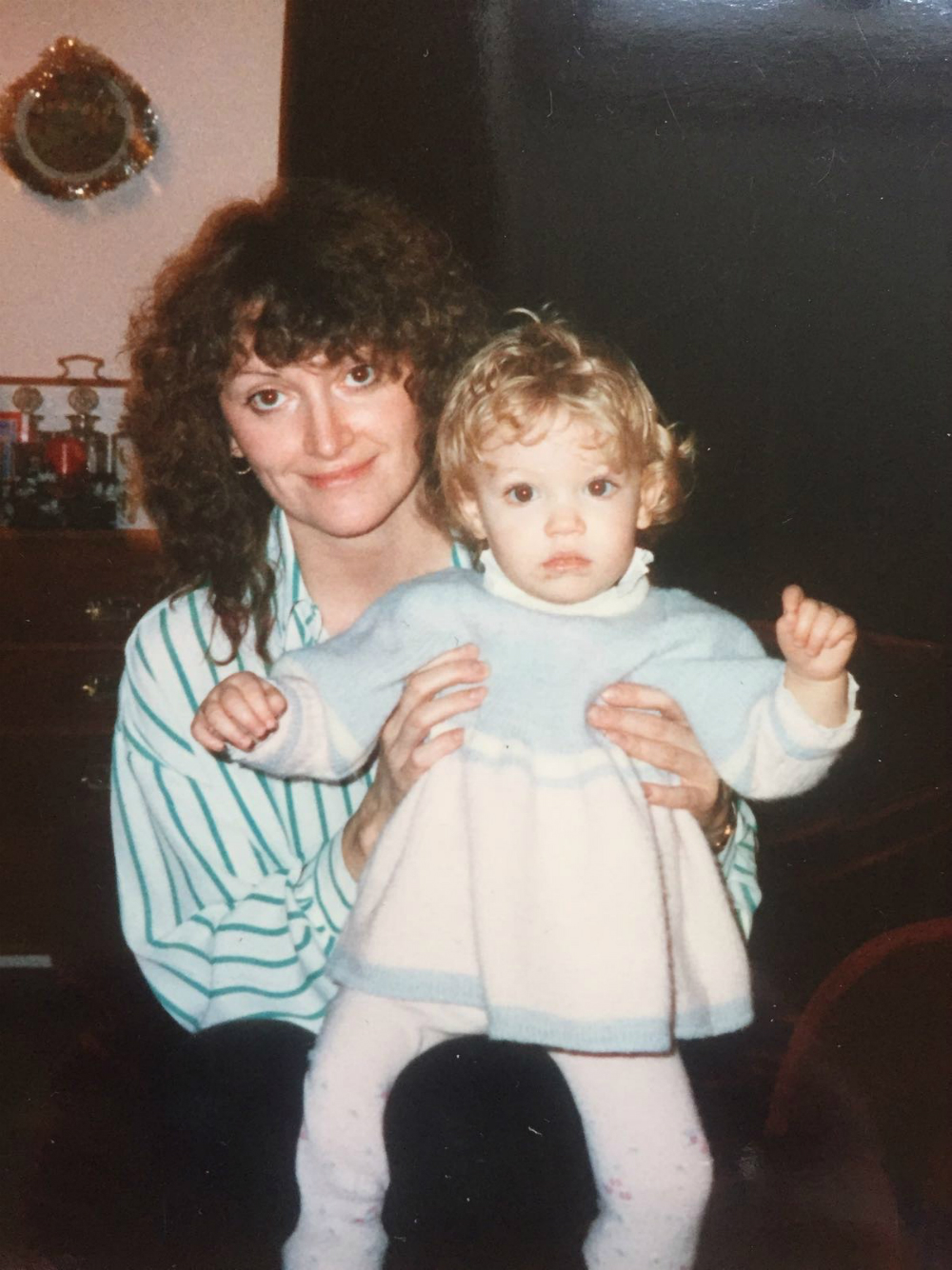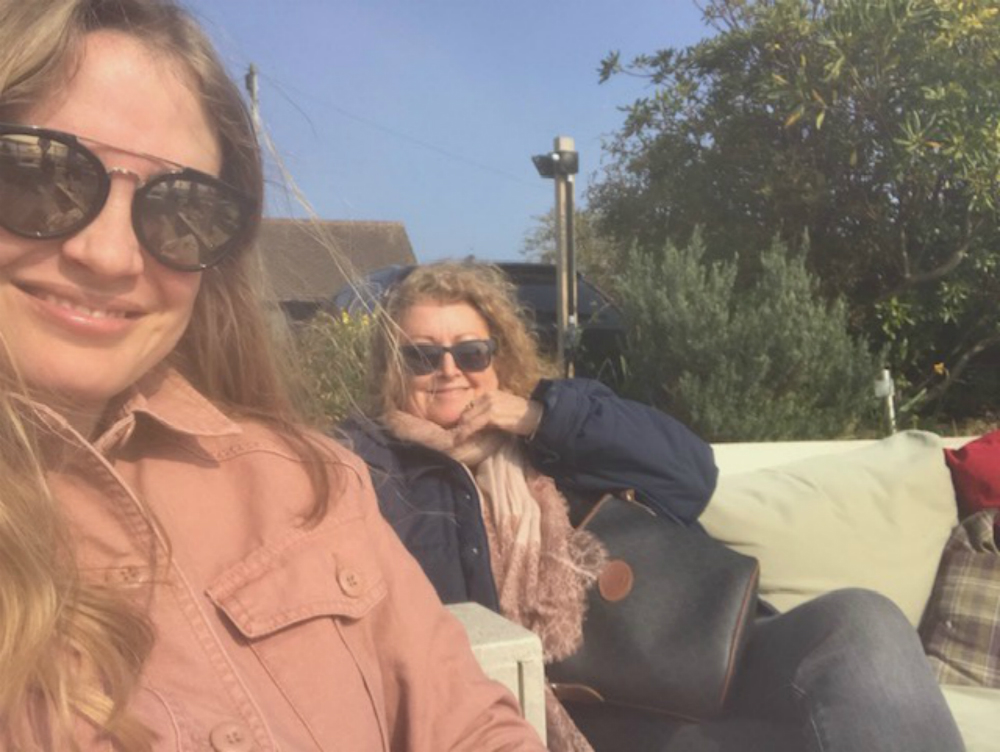'My mum had a stalker for three years and it's shaped my life ever since’
Author and journalist Marisa Bate has spent most of her 34 years worrying about what lurks in the shadows and our vulnerability where predatory men are concerned


Celebrity news, beauty, fashion advice, and fascinating features, delivered straight to your inbox!
You are now subscribed
Your newsletter sign-up was successful
Author and journalist Marisa Bate has spent most of her 34 years worrying about what lurks in the shadows and our vulnerability where predatory men are concerned
How do you know you’re being watched: Some instinctive feeling? An evolutionary radar developed to work as a defence mechanism to warn us of attack? I don’t know how I knew I was being watched, I just knew. And I could feel it. We sat in the hotel having breakfast. I turned my head to the window. His face was peering up against the window. His eyes felt heavy, unmoving, deliberate. I blinked back. Just for a moment we looked at each other. “Mummy,” I said, “there’s a man at the window”. He was gone.
My mum knew immediately who I meant. She’d seen him around throughout our holiday. Quickly, she’d begun to notice him everywhere. The thing is, she says now, is that she wasn’t sure if he was stalking her, a woman in her 30s, or us: me, her 4-year-old daughter and my brother, her 8-year-old son. She took us to the local police station. Handsome Italian men with dark hair and light blue jeans made plans. One afternoon, in the silence of the heat, we walked where the police told us to, and then he appeared, right on cue. They got him.
This, however, was the second time our little family was stalked. The first time was in our home. I don’t remember any of it but it has become like family folklore. We lived down a lane in woodland behind a motorway. Not many people even knew the lane or houses were there. At the top of the road was a deserted airfield. There were no street lights.

I was just a baby and my brother was about four. My father had recently left my mother and so it was just the three of us in our house in the woods. It began much how it ended; unexplained. There was door knocking in the middle of the night but there was no one at the door. The phone would ring but the line was silent. My brother can remember my mum picking up the phone, screaming “fuck off!” before slamming it down again. We found faceprints up against the living room window. One time my uncle sat in the garden all night with a baseball bat. Other times the police would come. They’d wait and watch. No one was ever seen, caught, charged with trying to incite terror on a young family. According to my mum, the stalker would make a nuisance for a few weeks at a time before going quiet. This went on for about three years.
This family folklore has been very formative, for different reasons. Mostly, I look back in awe of my mother managing that situation. She didn’t sell the house, she didn’t move in with friends or family. In fact, she screamed “fuck off” down the phone. She was not backing down. Her bravery and resolve are mind-blowing.

But it has also shaped me in a less positive way, too. I’ve grown up with a shady figure of a man hiding in a bush lingering around me. And this image of the stalker has become a bigger representation of my perceived reality as a woman in the world; it has become a warning, a lesson, that women are vulnerable, that there are figurative and literal, men in the woods, waiting to pounce. This, of course, is not ideal. And not even completely true because grimly, mostly women are attacked by men they know, not strangers hiding behind a tree in the dark. But it has cast a long shadow. And sadly, something that was reinforced growing up. I went to school near Milly Dowler, the 14 -year-old schoolgirl who was abducted and murdered. Throughout my time there, the school would send out warnings when suspicious vans had been circling. Even when I was very little, and visited a summer childcare scheme, the message was clear: as we walked hand in hand down to St James Park, the leaders told us to remove our name tags, and whatever we do, never talk to strangers.
Celebrity news, beauty, fashion advice, and fascinating features, delivered straight to your inbox!
Now as an adult, when I get a late train home, I hold my keys between my fingers or walk down the middle of the road where it is lightest. The problem has not gone away: the threat of a predatory man lurking out of sight is still something I and women everywhere contend with on a near daily basis. We can’t walk certain routes home, we can’t go running when it is dark, we must be sure we tell people where we’ve been and where we’re going.

The experience of the stalker made my mother a very tough, cynical and cautious woman, and it made me aware of the darker shadowy corners of the world we live in. It was undoubtedly a harrowing, extreme experience. But I also see how we all, in one way or another, still contend with an unseen threat, all the time. * STALKING IS ILLEGAL. You have a right to feel safe in your home and workplace. If you are being stalked - this can include being followed or constantly harassed by another person, such as being sent unwanted emails - please contact the police. You can also seek help and advice at The National Stalking Helpline run by Suzy Lamplugh Trust. Call 0808 802 0300. For more information visit: suzylamplugh.org/pages/category/national-stalking-helpline or scaredofsomeone.org
Maria Coole is a contributing editor on Marie Claire.
Hello Marie Claire readers – you have reached your daily destination. I really hope you’re enjoying our reads and I'm very interested to know what you shared, liked and didn’t like (gah, it happens) by emailing me at: maria.coole@freelance.ti-media.com
But if you fancy finding out who you’re venting to then let me tell you I’m the one on the team that remembers the Spice Girls the first time round. I confidently predicted they’d be a one-hit wonder in the pages of Bliss magazine where I was deputy editor through the second half of the 90s. Having soundly killed any career ambitions in music journalism I’ve managed to keep myself in glow-boosting moisturisers and theatre tickets with a centuries-spanning career in journalism.
Yes, predating t’internet, when 'I’ll fax you' was grunted down a phone with a cord attached to it; when Glastonbury was still accessible by casually going under or over a flimsy fence; when gatecrashing a Foo Fighters aftershow party was easy-peasy-lemon-squeezy and tapping Dave Grohl on the shoulder was... oh sorry I like to ramble.
Originally born and bred in that there Welsh seaside town kindly given a new lease of life by Gavin & Stacey, I started out as a junior writer for the Girl Guides and eventually earned enough Brownie points to move on and have a blast as deputy editor of Bliss, New Woman and editor of People newspaper magazine. I was on the launch team of Look in 2007 - where I stuck around as deputy editor and acting editor for almost ten years - shaping a magazine and website at the forefront of body positivity, mental wellbeing and empowering features. More recently, I’ve been Closer executive editor, assistant editor at the Financial Times’s How To Spend It (yes thanks, no probs with that life skill) and now I’m making my inner fangirl’s dream come true by working on this agenda-setting brand, the one that inspired me to become a journalist when Marie Claire launched back in 1988.
I’m a theatre addict, lover of Marvel franchises, most hard cheeses, all types of trees, half-price Itsu, cats, Dr Who, cherry tomatoes, Curly-Wurly, cats, blueberries, cats, boiled eggs, cats, maxi dresses, cats, Adidas shelltops, cats and their kittens. I’ve never knowingly operated any household white goods and once served Ripples as a main course. And finally, always remember what the late great Nora Ephron said, ‘Everything is copy.’
